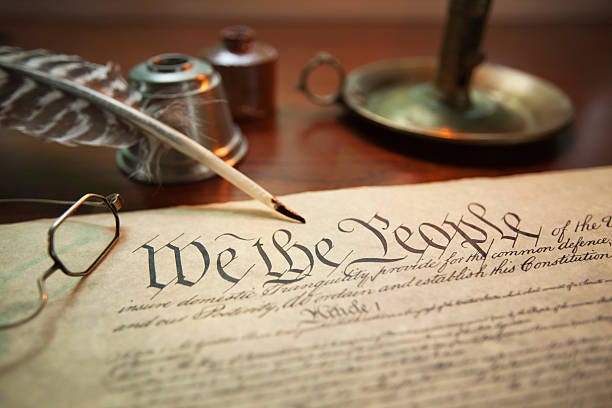Supreme Court SHOCKS Everyone with Trump Decision
The Administrative State that has usurped full Presidential Executive Powers granted by our Constitution since 1935 is no longer in control
Replacing the Administrative State will be what was in place before 1953 - the Unitary Executive Theory of Presidential Governance
The Administrative State could be overridden by a new President, the Unitary Executive Theory of Presidential Governance can not…
5-min PODCAST Focusing on Unitary Executive Theory
Brace for Impact: Project 2025 - The Sweeping Conservative Overhaul of the US Federal Government
Chapters
00:00 Iowa Lottery Ad
00:30 Introduction to Project 2025
00:49 The Heritage Foundation’s Role
01:25 Unitary Executive Theory
02:01 State Department Overhaul
02:40 Political Loyalists and the Playbook
03:12 Schedule F and Civil Service
03:44 Eliminating Agency Independence
04:13 Concerns from Civil Liberties Groups
04:43 Elections and Project 2025’s Future
05:06 Nuanced Discussion Needed
About the Unitary Executive Theory
The Unitary Executive Theory (UET) is a constitutional law theory asserting that the President of the United States possesses sole authority over the Executive Branch, maintaining control over all subordinate officers and agencies. Proponents argue this power is derived from the Constitution’s Vesting Clause, which states that “the entire ‘executive Power’ belongs to the President alone.”
This theory posits that the President is a one-person executive branch and therefore has the authority to direct and control all government officials wielding executive power, as no one else is granted these powers under the Constitution.
Proponents also cite the “Take Care Clause,” which mandates that the President “shall take care that the laws be faithfully executed,” as further justification for a hierarchical, unified executive department.
Strong versions of UET suggest the President has unlimited power to control the actions of the executive branch and can remove top executive agency officers appointed by Congress at-will, without needing a for-cause reason.
This implies that Congress cannot limit the President’s control of the executive branch, nor can it establish independent executive agencies and counsels not controlled by the President.
The theory gained prominence during the administration of President George W. Bush and has been further asserted by subsequent administrations.
Some supporters argue that the original intent of the country’s founders required presidential control, including the power to remove federal officials for political reasons.
In 2020, the Supreme Court ruled 5–4 that, under the Vesting Clause, “the entire ‘executive Power’ belongs to the President alone”.
In 2021, the Supreme Court held that the President can remove top executive agency officers appointed by Congress at-will.
Critics argue that a strong unitary executive provides a pathway to autocracy, as unilateral presidential control over the executive branch is a defining characteristic of autocracies.
There is debate on whether the First Congress definitively settled the question of a strongly or weakly unitary executive.
Our Note
There has already been resistance established within the Democrat party concerning Unitary Executive Theory (UET).
Here’s the Achilles heal to defending an Administrative State - most of their push back on UET involves cases AFTER 1935 with a few before 1935 (the year the Administrative State usurped UET) when UET was in full play.
FDR was President in 1935 and both houses of Congress were dominantly Democrat.
Need we say anything more?



